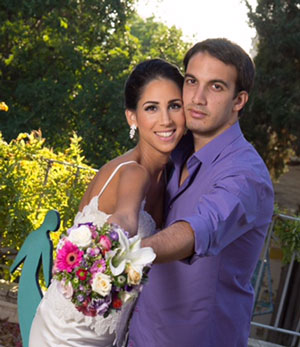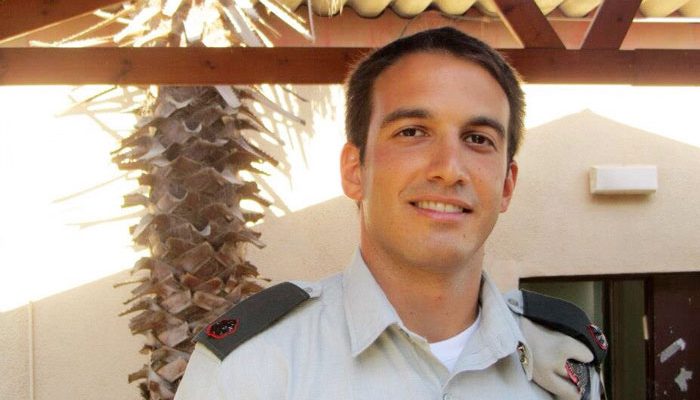“When I was introduced to Beit Halochem, despite my pain and invisible scars many good things started to happen.”
Ofir Anidjar grew up in Ma’alot with his parents, two brothers and a sister. Throughout his childhood, his family was often under threats of Katyusha rockets being fired across the border from Lebanon. Together with his siblings, Ofir embraced a love of Zionism from an early age and watching his father head off to miluim (army reserves) in his army uniform every year, left him with a feeling of deep admiration and respect for service to the State of Israel.
In 2003 he served as an officer in the Engineering Corps in the IDF, mainly working on bulldozers and tractors and assigned to a unit that was always at the front line. When Gilad Shalit was kidnapped in 2006, the IDF sent forces into Gaza and Ofir was amongst the first to enter. A week later, reservists Regev and Goldwasser were abducted by Hizbollah which triggered the beginning of the Second Lebanon War. He and his men were given orders to leave Gaza and head for Lebanon.
After the war ended, Ofir continued to serve his country for another 6 years. In total, he spent 10 years as a career officer and served in numerous military operations, combat missions and two wars. In 2013, he was discharged with the rank of Major and soon after, met his future wife, Shai, who served as a platoon commander in the IDF.
When “Operation Protective Edge” broke out in July 2014, Ofir was drafted as a reservist to serve for the first time since his discharge. His mission was to track and locate tunnels. The company he commanded was composed of much older reservists, most of whom were leaving behind families and jobs. Whilst patrolling the Gaza border, a terrorist squad emerged from an underground tunnel shaft and launched a Kornet missile at Ofir’s unit. Eleven soldiers were wounded including Ofir. Ofir had no recollection of what happened during his rescue or evacuation.

Shai and Ofir were married in 2014.
After being treated in hospital for wounds and shrapnel in his leg and other parts of his body, Ofir was transferred to a rehab center in Tel Aviv. During this time, Ofir and Shai discussed the option of postponing their wedding because he was confined to a wheelchair and couldn’t stand. One of his doctors suggested to Ofir not to postpone their simcha but rather to make it his goal to stand up at their wedding. Shai and Ofir were married on October 6, 2014.
Since Operation Protective Edge, Ofir continues to suffer from Post-Traumatic Stress Disorder/ PTSD, which has manifested in several ways. He cannot stand loud sudden noises, experiences pain all over his body where the shrapnel hit him, has dizzy spells, and only sleeps about 2 – 3 hours a night. Sadly, Ofir has also experienced bouts of depression and at times had little desire to leave his house. Shai shares the full consequences of his injury, too and is very supportive.
Ofir’s life started to turn around during his first visit to Beit Halochem, because at Beit Halochem, PTSD is recognized as a severe, chronic, and debilitating condition. “When I was introduced to Beit Halochem, despite my pain and invisible scars many good things started to happen,” Ofir has said. “Thanks to Beit Halochem, I was able to restart my life with my beautiful and loving wife by my side… Beit Halochem is our second home… Beit Halochem listens, but most of all embraces and understands.”
A wide range of therapeutic treatments, sporting and cultural activities, are available to Ofir and Shai. Today, Ofir is a regular at Beit Halochem. He works out at the Fitness Centre, and helps with the Young Veterans programs, while also studying Civil Engineering at Tel Aviv University. His wife Shai, after her discharge and with the rank of Lieutenant, began studying Occupational Therapy. Her goal is to work with wounded war veterans, helping them rehabilitate.

Comments are closed.